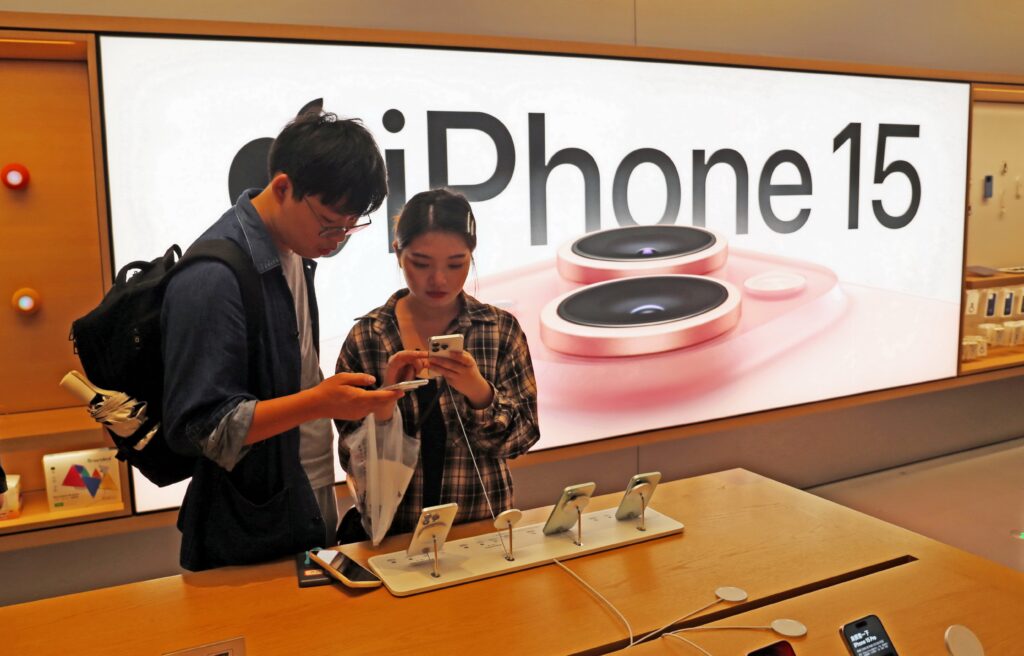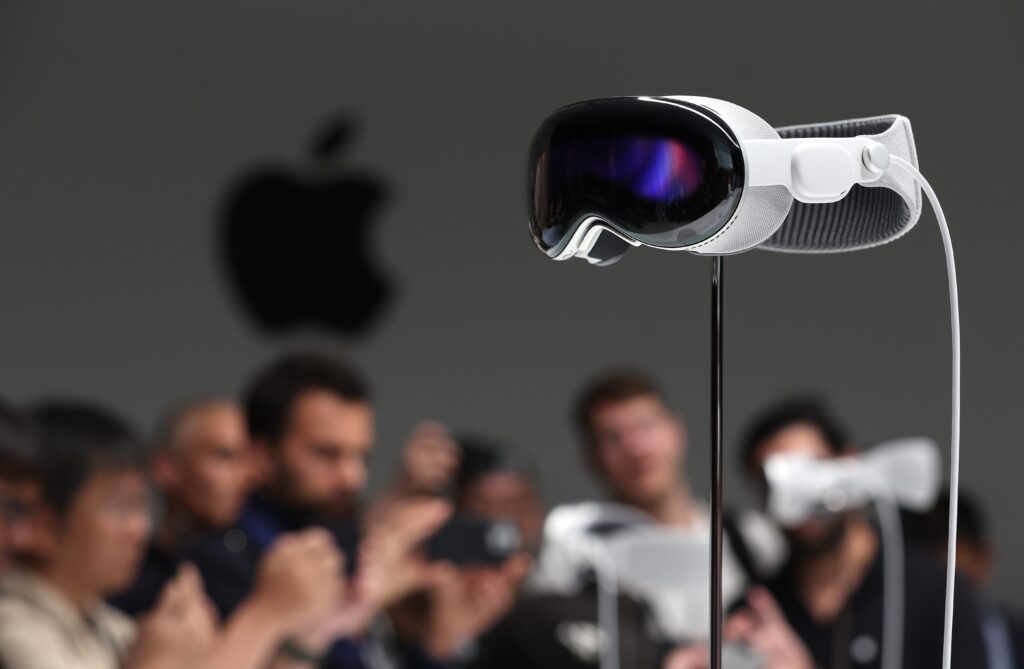- Apple wanted all eyes to be on the Vision Pro when it launched.
- There's a lot more excitement about its plans with AI instead.
- A report about AI chips coming to next-gen Macs helped boost Apple's stock by $112 billion.
Two months ago, Tim Cook was busy marking Apple's bold new vision of the future with the launch of expensive nerd goggles. He might want to reconsider where the company's real future lies.
Last week, investors signaled their belief that there is a more important needle-mover in the Cupertino giant's future than the $3,500 Vision Pro headset it launched in February; Apple's stock by $112 billion after news of an AI overhaul to Macs, of all things.
A report on Thursday from Bloomberg's Mark Gurman said Apple is working on revamping its entire Mac lineup with a series of new M4 processors that aim to put AI at their center.
The positive response to the news shows two key things for Apple.
First, expectations are sky-high for its AI strategy.
Though Apple has remained mostly silent on its plans for the tech industry's most-discussed technology over the past year, the market expects Apple's AI efforts to help bring new life to product categories that have felt increasingly staid in recent years.
Macs, which suffered a 27% sales drop in the last fiscal year, could entice a new generation of buyers if they come fitted with chips that power generative AI features.
The same goes for iPhones — Apple's biggest revenue driver — at a time when their sales are showing signs of weakness. A report from the International Data Corporation published Monday showed iPhone sales dropped almost 10% in the first quarter of the year.

During that period, Apple particularly struggled with selling iPhones in China, its most important international market, as competitors like Huawei enticed consumers to rival offerings like the Mate 60 Pro. AI could give the phones the refresh needed to make them more appealing again.
Second, the future of the Vision Pro remains highly uncertain.
Mixed-reality technologies like virtual and augmented reality remain niche areas, which are proving tough to attract a mass consumer market to. Some early adopters have already returned their headsets. Apple, meanwhile, has already started offering discounts, per reports.
Also, as my colleague Peter Kafka noted this month, the Vision Pro lacks "killer apps" that can make its "spatial computing" concept feel like more than just a neat trick with a limited number of use cases.
Will that change any time soon? It's possible. With Apple's Worldwide Developers Conference set for June, a slate of announcements linked to the Vision Pro could make it much more useful.
Just don't expect the Vision Pro to steal the show in the same way a big AI reveal would.
